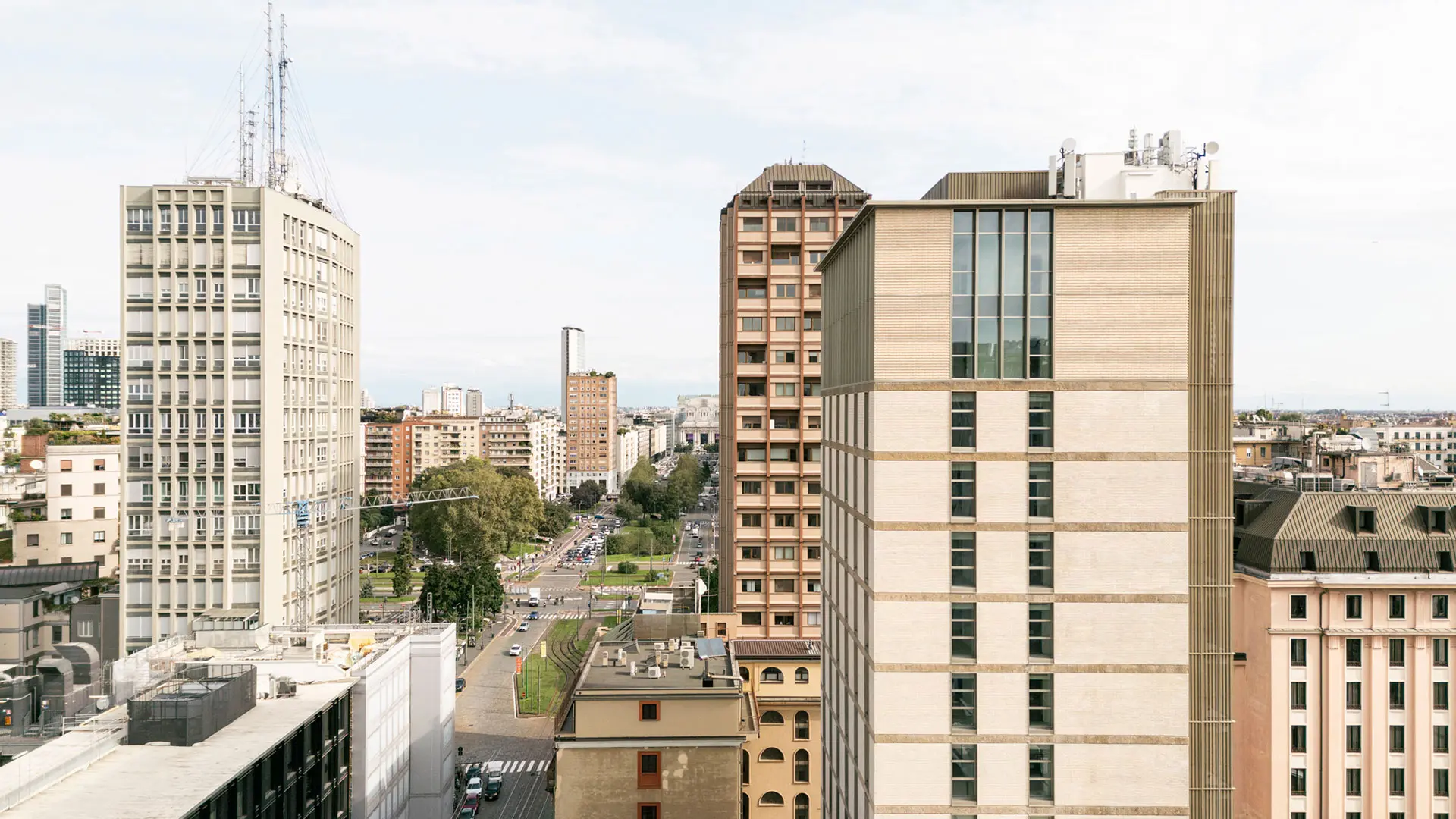In partnership with MiCodmc, a selection of establishments ripe for discovery during the 63rd edition of the Salone del Mobile.Milano, from 8th to 13th April
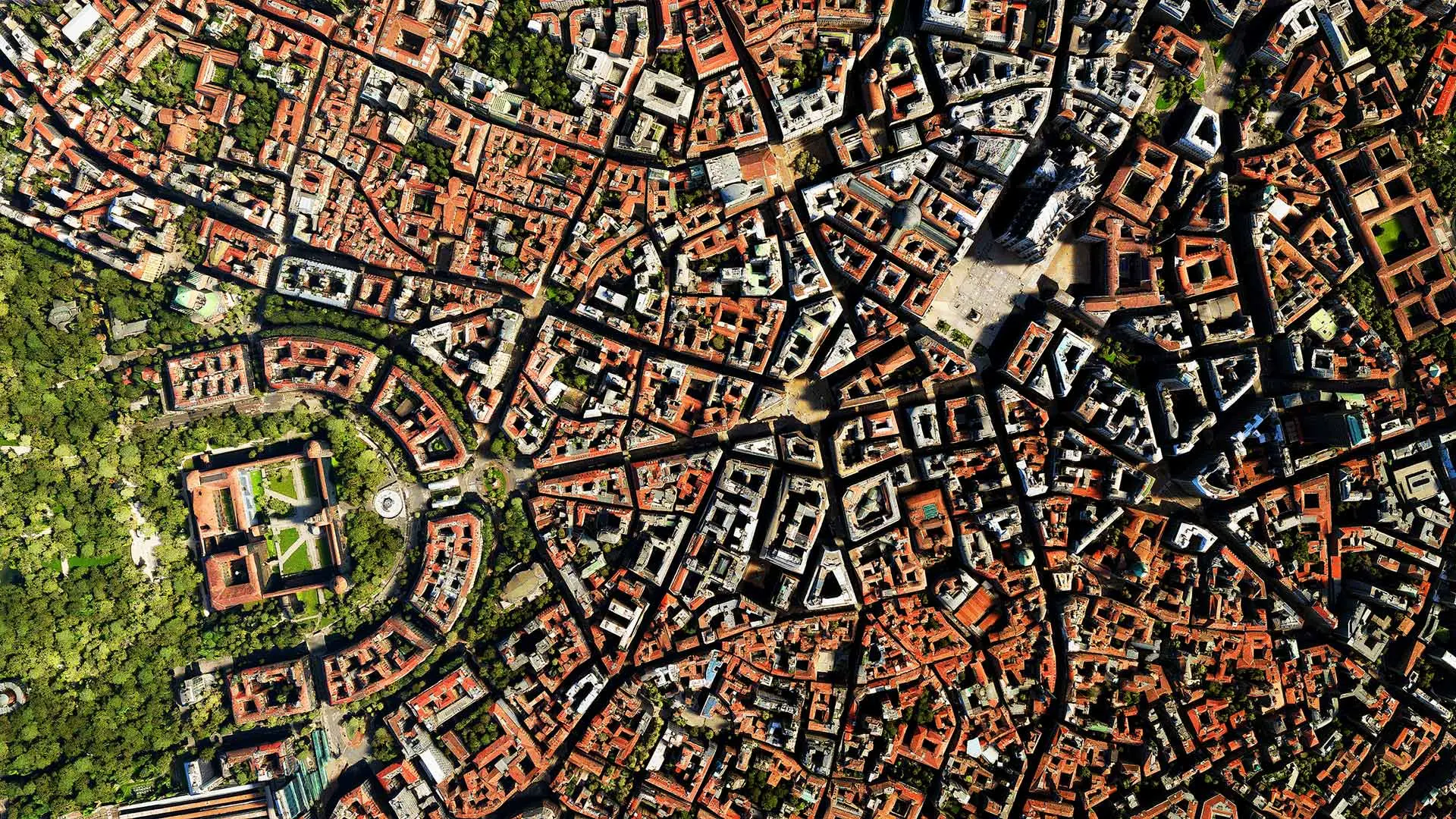
We never stop wondering why, often to our own detriment, we create cities. Four books delve into the question, offering some answers about the future of our urban environment
The city as concept is increasingly hard to grasp as a single overview, and not just because knowledge is increasingly sectorialized and atomized. Such is the complexity of the city’s histories and reasons for existing that people keep on stepping up to write the definitive book on the city. Not a book about a city, or a book that talks about a certain new aspect of cities: works that delve into the very concept of the city in all its barely calculable breadth, globally, and down through the ages. Ash Amin and Nigel Thrift struck a significant blow in 2002 with their book Cities (which, to this day, continues to be a seminal urban studies text). The drive to investigate the city as a system of reasons, needs and choices seems to have continued ever since.
Four recently published works offer four different perspectives on this ongoing issue. It turns out that the criteria for designing a skyscraper, the fight against urban iniquity, rooftop vegetable gardens, nineteenth-century urban morality policies and curbstones are held together by far more links and tensions than we could ever have imagined.
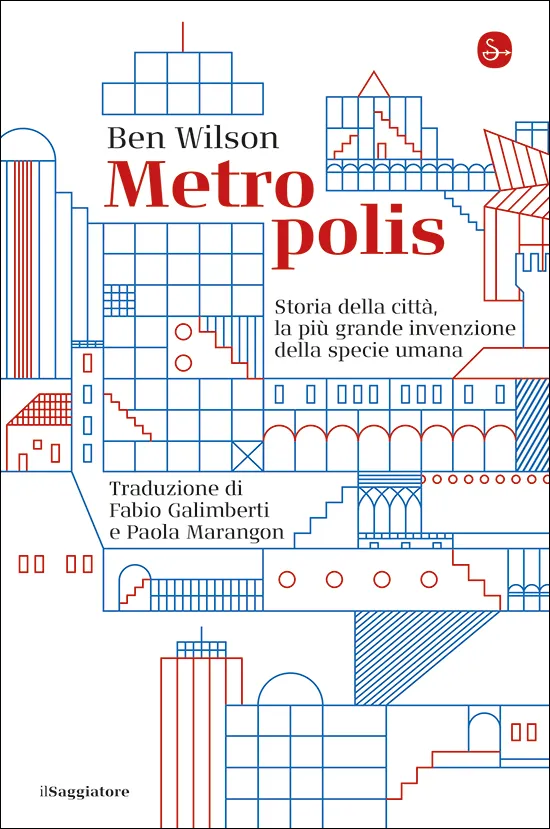
Metropolis
Undoubtedly the most ambitious of these books in scope (and the most substantial, coming in at 568 pages) is Metropolis. Practically a course in the history of cities, the book links every period between 4000 BC and 2020 with a historical symbol, from Uruk to Lagos, Gilgamesh, and Nigeria’s Dubai (which is called Eko Atlantic), not forgetting Vasco da Gama and London’s first coffee houses, Babylon and its reputation for dangerous temptations, and New York and its reputation for being dangerous because of the risk of living in complete anonymity (a dream in 2022). In Metropolis The History of the City, the Greatest Invention of the Human Species, the English historian who wrote The Making of Victorian Values returns to the theme of ideas being collectively constructed, this time addressing its most monumental and complex manifestation, the intangible matter that holds together and gives sense to the objects and infrastructure we know as our cities.
Titolo: Metropolis The History of the City, the Greatest Invention of the Human Species
Autore: Ben Wilson
Publishing House: Il Saggiatore
Year of publication: 2021 (original ed: 2020
Pages: 568
Language: Italian
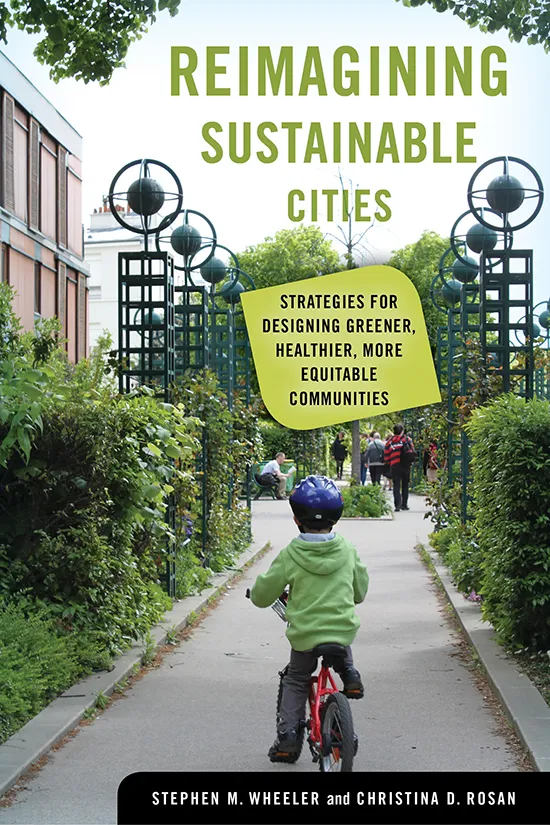
Reimagining Sustainable Cities
Urban sustainability scholars Wheeler and Rosan curate a veritable compendium of all open questions on this topic, systematizing all the analyses and decisive frameworks that, frequently encountered in our multiple media, may otherwise blow away like soap bubbles on the surface of our everyday mental life. Addressing a diverse audience without seeking to be a simple handbook, this work is eminently American in its approach, including its references. The point is to “think critically about the structures that have created our economic, political, cultural and social systems”, looking at each issue through different scenarios to address clearly identifiable data and landmark events in distortions of our contemporary cities, such as the long wave of Hurricane Sandy, disparities in gig economy ecosystems, through to the killing of George Floyd in 2020.
Titolo: Reimagining Sustainable Cities: Strategies for Designing Greener, Healthier, More Equitable Communities
Autore: Stephen M. Wheeler, Christina D. Rosan
Publishing House: University of California Press
Year of publication: 2021
Pages: 339
Language: English
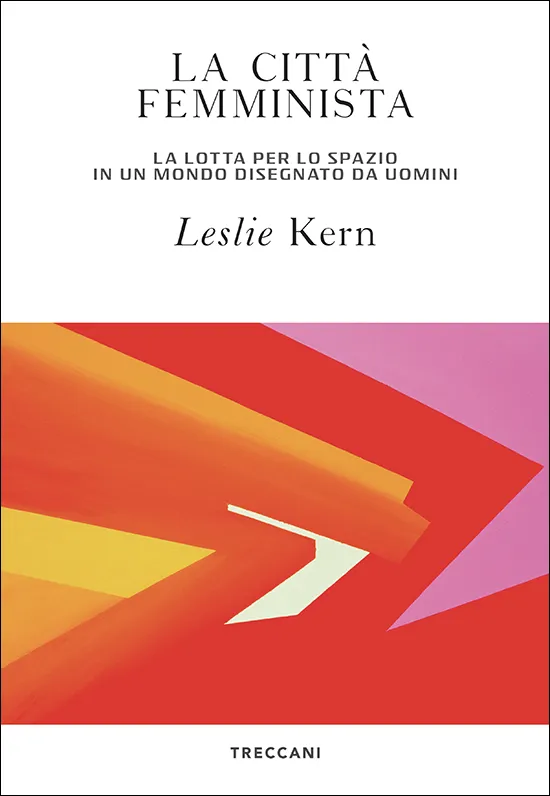
The Feminist City
“You would never think gender bias affects the height and location of skyscrapers or the development of wind tunnels, but it does.” The Feminist City explores the city as a concept often generated on women’s bodies instead of for women. Indeed, policies and design choices often make it impossible for women to be subjects with agency, friends, mothers, singles, even prostitutes (eternally read as an urban policing problem, if not one of salvation)… This study of feminist geography eschews middle-aged white men’s citationism, even if the author challenges and breaks through the limits of a feminist approach. Ultimately interpreting the city as terrain for intersectional struggle against ingrained powers, she integrates class-transcendent, anti-ableist and queer instances: “To pose ‘women’s questions’ about the city is to address far more than just a gender-based issue.”
Titolo: In Feminist City: Claiming Space in the Man-Made World
Autore: Leslie Kern
Publishing House: University of California Press.
Year of publication: 2021 (original ed: 2019)
Pages: 232
Language: Italian
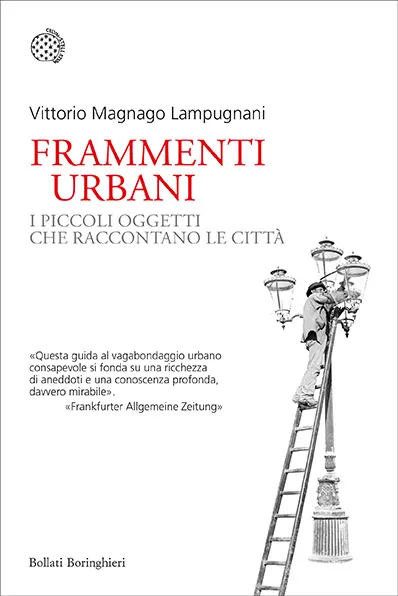
Frammenti urbani
Objects in cities, micro-components of the most complex urban systems, are both a product of their construction and the medium that enables and narrates them. Such fragments can tell us a lot: German Trinkhallen tell the story of Europe’s complicated history with alcohol, Alphand’s iconic urban furnishings about a Haussmannian Paris that was more a vision of political space control than a cosmetic operation… Flitting between shop windows, curb stones, torèt torinesi and the Ampelmännchen on Berlin’s traffic lights, architect and city historian Magnago Lampugnani presents us with a parade of objects that is both an almost laser-like survey of scientific precision and an investigative narrative that keeps us glued to the page.
Titolo: Frammenti urbani. I piccoli oggetti che raccontano le città
Autore: Vittorio Magnago Lampugnani
Publishing House: Bollati Boringhieri
Year of publication: 2021 (original ed: 2019)
Pages: 285
Language: Italian


 Stories
Stories






